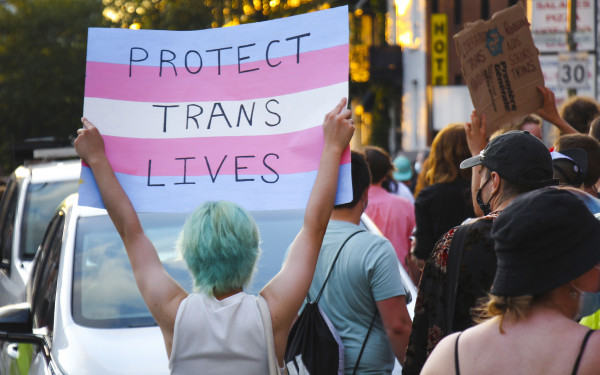The Fine Line Between Education and Exploitation
Why Are Unpaid Internships Such a Culturally Accepted Norm?
We all want to make enough money to be able to live a comfortable life with a Peugeot and a labrador one day. Unless you intend to become a one-hit-wonder (see: Bobby Shmurda, Rick Astley), you’ll probably have to supplement your studies with an internship. You won’t often be paid for this in Canada, nor will you be protected by federal legislation.
As young people entering the workforce begin to form a growing segment of the population, this issue is unlikely to go away anytime soon and it is gaining ground in Ottawa today as MP’s and campaigners alike press for interns to be given sufficient rights in the workplace.
“Interns should be classified like any other worker under the labour code,” said Adam Seaborn of the Canadian Intern Association. “There should be a way for interns to have a path for recourse.” The Intern Protection Act, which was first tabled last June, is set to be debated and voted on in Parliament this spring and has contributed towards keeping this debate alive. The law, if passed, will provide unpaid interns—estimated to number about 300,000 nationwide—in federally-regulated industries with the basic protections that are afforded to permanent employees.
The bill is the brainchild of Laurin Liu, the New Democratic Party MP for Rivière-des-Milles-Îles, who told The Link in September that “interns are not protected by federal law in Canada.” Liu said the Harper government has altered its position since the tabling of her private member’s bill, although it hasn’t yet announced whether it opposes or supports the bill. Despite this, it has recently undertaken consultations with student groups. “My private member’s bill forced the government to reconsider its interpretation of the Canadian Labour Code with regards to interns, to look at the issue and to take it seriously,” Liu said.
“A patchwork of provincial labour laws exists across the nation, but in general these are inadequate and do not provide a clear avenue for recourse against an employer.”The bill would provide interns with the same protections as other employees, something that many believe is already the case. It’s shocking that interns have practically no rights in the workplace. Liu says the proposed Intern Protection Act is “far from radical.”
“It is largely a common-sense piece of legislation,” she said. “It will limit the working week to 48 hours, provide interns with the right to refuse dangerous work and protect them from sexual harassment.” A private member’s bill is a piece of legislation proposed by an MP that isn’t a cabinet minister. Given the Conservatives’ majority in the lower house, this bill will require bipartisan support in order to become law. Many employers, however, are looking to the government for exact guidelines on what they can and can’t do.
When I spoke to Liu in January she told me that her party had asked the government how many interns are currently working for the federal government. “Since 2008 the federal government has employed almost a thousand interns,” said Liu. “However, only 22 of these interns were subsequently hired after their internship. This proves that the chances of gaining a job in federal government after interning are very low.”
The non-payment of interns is largely a “North American phenomenon,” according to the Canadian Intern Association, which attributes the growing mass of interns to the economic climate and says that unpaid internships have subsequently become widely culturally accepted. “Interns are a reality of our current economic situation. They exist in large numbers and, for the most part, they are not protected by the law in their province or nationally.”
The Canadian Intern Association, founded in 2012, is seeking to educate young people who are entering the workforce and may be put into a precarious position by accepting an unpaid internship. It also lobbies for legal reform and change on the municipal, provincial and federal levels, while also helping graduate students collect data, thus making it easier for the group to lobby for policy changes. “The Intern Protection Act, if passed, will be a great amendment to the Canadian Labour Code,” said Seaborn. “At the moment there is a serious gap in the law with regard to the protection of unpaid interns.
“Labour rights is an issue that affects almost every Canadian citizen,” Seaborn asserted. “Having [interns] explicitly stated in law is a pretty important issue when dealing with sexual harassment complaints or refusal to work.”
“Labour rights is an issue that affects almost every Canadian citizen,” Seaborn asserted. “Having [interns] explicitly stated in law is a pretty important issue when dealing with sexual harassment complaints or refusal to work.” Seaborn added that interns are often given tasks that would typically be done by paid administrative assistants.
Under the provisions of the proposed law, the employer will be obligated to notify their interns of the terms of the internship, including pay, or lack thereof, along with the hours they will be required to work. Liu said that the New Democratic Party feels this is merely a “first step” to providing interns with greater protections.
Of course, there’s nothing inherently wrong with an internship per se. Shaun Michaud, Photo and Video Editor at The Link, described his four-month internship at the Montreal Institute for Genocide and Human Rights Studies as a “fruitful experience.”
“I had complete creative freedom and the experience I accrued was helpful,” Michaud said. “However, I was not paid, although I fulfilled tasks similar to paid employees—although I knew that before I decided to undertake the internship, so I guess that’s my choice.”
Maryne Zammit, who is interning at Radio Centre-Ville, performs part of the role of a paid employee without any remuneration. Most of the training she receives is based on feedback from her own projects, however, her boss hasn’t been present recently. This seems to be a fairly typical experience.
Alex Tyrrell, leader of the Green Party of Quebec, says his party is “generally in favour of the bill.” However, the Greens also “want to make sure any legislation like this doesn’t stop anyone from doing volunteer work.” “We would be more favourable [toward] people doing internships in small businesses or non-profit organisations rather than large corporations where most of the abuse comes from.”
The proposed bill follows the death of Andy Ferguson, an unpaid intern at Astral Media’s local pop rock radio stations, The Bear and Virgin Radio in Edmonton. Ferguson died from a head-on collision in 2011 after working excessive hours. Although Bell, which made a profit of over $1 billion in the third quarter of last year, has relented to public pressure over the hiring of unpaid interns, many others have continued the practice.
The ubiquitous logic of neoliberalism, in accord with cultural acceptance of unpaid internships (despite the fact that such internships disproportionately favour kids with rich parents), is one that has to be challenged. However, I would endorse Tyrrell’s suggestion that unpaid internships be allowed at non-profits. If you’re going to get exploited you may as well make sure it’s not going to add to the profits of your overlords.
This article originally appeared in Volume 35, Issue 19, published February 3, 2015.




_600_375_90_s_c1.jpg)

